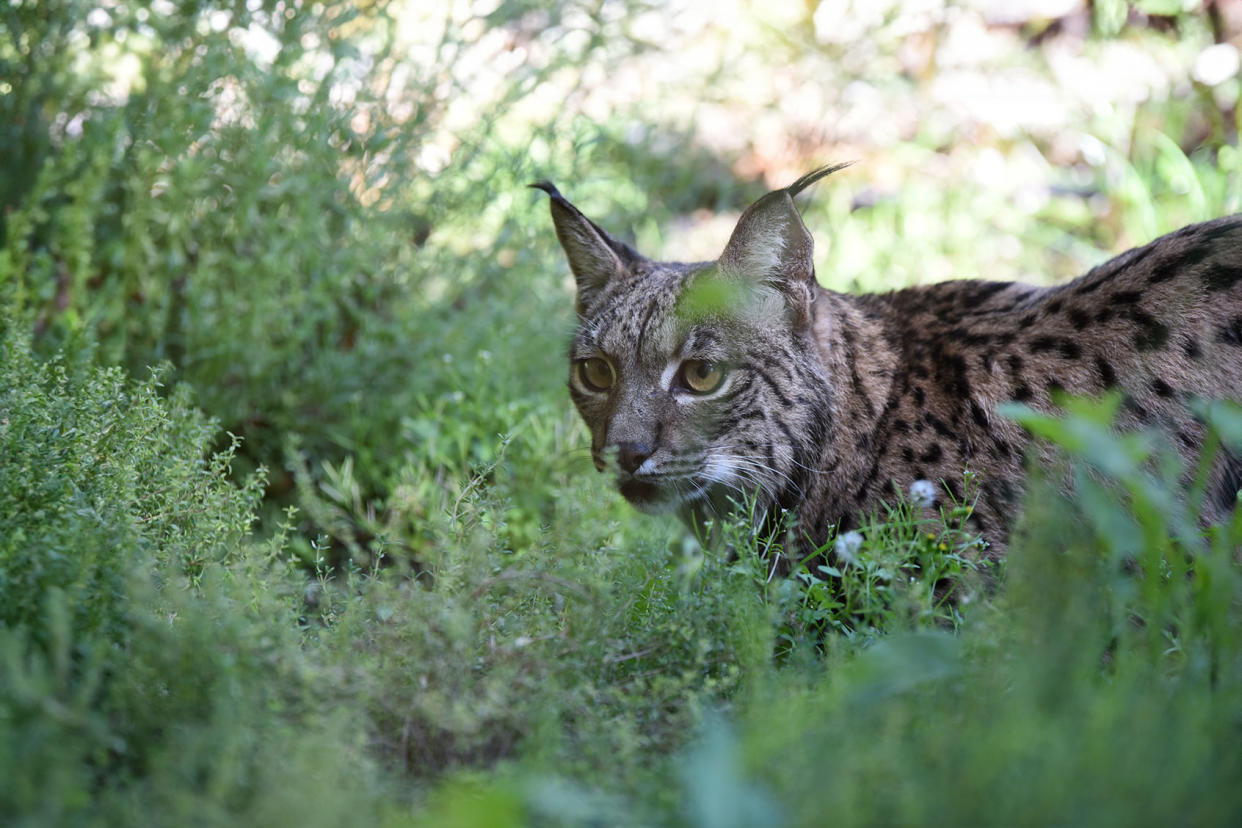Iberian lynxes move from endangered to vulnerable thanks to conservation efforts

Viral illnesses don't just hurt their hosts, but sometimes can indirectly devastate other animals. Take for example the the endangered European rabbit (Oryctolagus cuniculus), which is paradoxically invasive in some parts of the world, but is on the verge of extinction in its native Iberian Pennisula. One of the primary drivers killing it is rabbit haemorrhagic disease virus, which can trigger a deadly fever that kills within 36 hours. This is bad news for the rabbits, obviously, but also not great for the animals that depend on it as a food source, such as the Iberian lynx (Lynx pardinus), which is also endangered.
Or it was. A recent report from the International Union for the Conservation of Nature (IUCN) noted a surge in the number of Iberian lynxes. As a result, the organization has reclassified the Iberian lynx, one of the four living species from the genus of medium-sized wild cats known as lynxes, from being "endangered" to the less perilous status of "vulnerable." That means it's a lot less likely to become extinct like the dodo or passenger pigeon.
According to the IUCN, Iberian lynx reintroductions to the wilds of Portugal and Spain have been successful. The lynx population has exploded from a mere 62 mature individuals in 2001 to a whopping 648 mature individuals by 2022. The combined population of young and mature lynx is now more than 2,000, while its range has increased more than sevenfold, to at least 3,320 square kilometers in 2022 from 449 square kilometers in 2005.
The report notes that part of the success here stems from "increasing the abundance of its prey, the endangered European rabbit (Oryctolagus cuniculus), protecting and restoring Mediterranean scrub and forest habitat, and reducing deaths caused by human activity." Though the rabbits are a major factor, of course they aren't the only reason Iberian lynxes have struggled. And while this is a rare success story in conservation, many more species are slipping in the opposite direction, toward what some ecologists describe as a "biological holocaust" thanks to human activity.
But the lynx story does illustrate the importance of considering ecosystems as a whole and not just attempting to protect individual animals, as well as underlining that conservation works when we put effort into it. In other words, letting so many creatures fall into oblivion is a choice and a reversible one at that.


